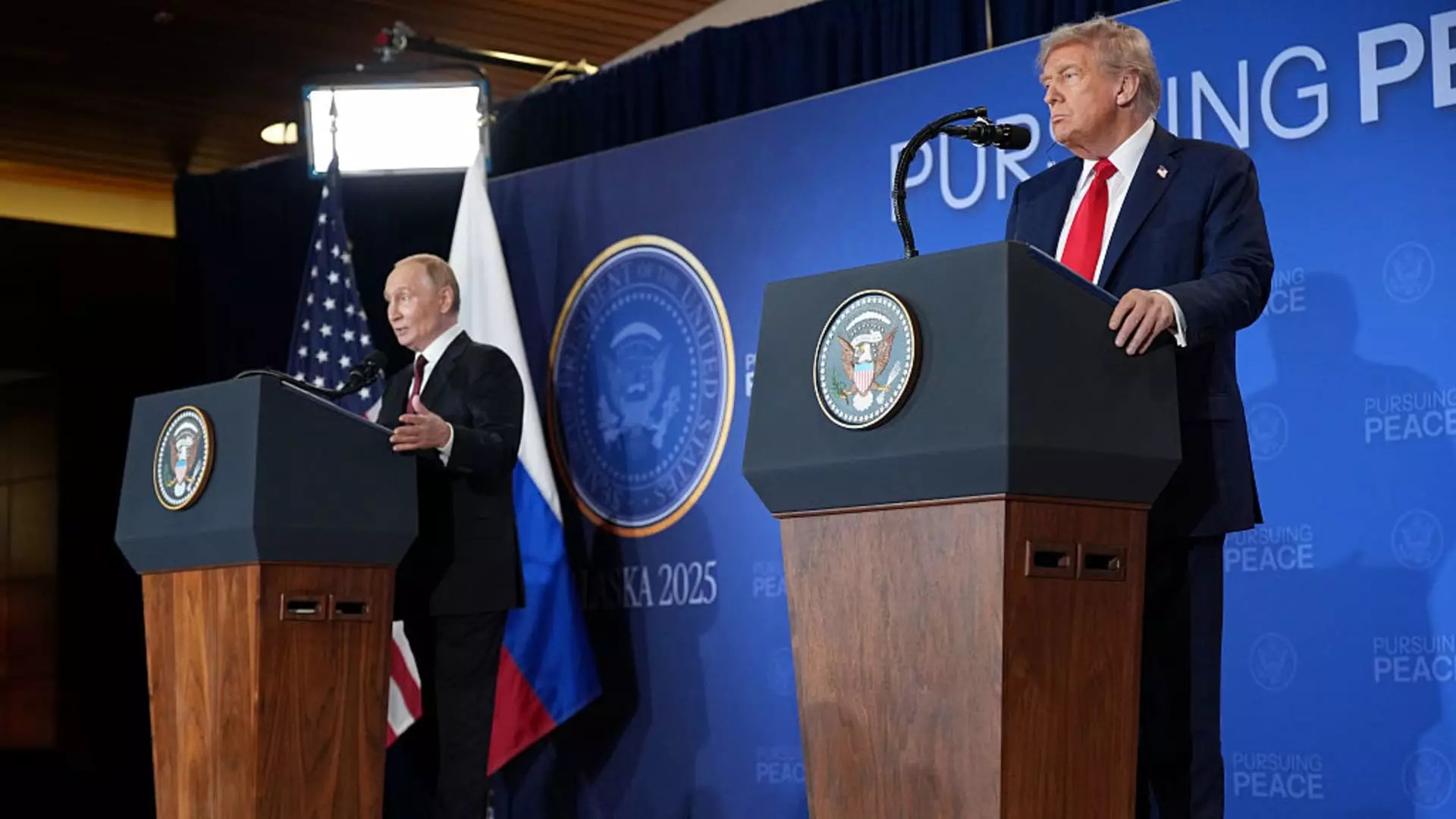President Donald Trump’s recent summit with Vladimir Putin sparks more questions than answers. While he claims the meeting was “very well,” the reality on the ground remains chaotic and uncertain. By emphasizing the pursuit of a comprehensive peace agreement rather than an immediate ceasefire, Trump’s stance appears ambitious but dangerously naive. His assertion that ending the Ukraine conflict depends solely on reaching a broad peace deal overlooks the complexities and immediate needs of Ukraine and its allies. The failure to secure a concrete ceasefire highlights a fundamental flaw: putting too much faith in diplomatic rendezvous, which often serve as distractions rather than solutions, can destabilize already fragile geopolitical balances.
Risking U.S. Leadership and European Security
Trump’s eagerness to align with Putin’s narrative is worrisome from a center-left liberal perspective. While diplomacy is essential, sacrificing clarity and urgency for high-level talks risks undermining U.S. credibility as a global leader. European allies, notably Ukraine’s President Zelenskyy, demand inclusion and insist on a decision-making process centered on Ukrainian sovereignty. Trump’s decision to sideline Ukraine in these discussions not only undermines their position but also emboldens Russia’s narrative of division. His approach suggests an overconfidence in summit diplomacy that can exacerbate existing anxieties among European nations worried about Russia’s expansionist ambitions. The danger lies in fostering a false sense of progress while allowing Russia to maintain a foothold in Ukraine—delaying tangible resolutions and empowering Putin’s propaganda campaign.
The Illusion of American Mediation
Trump’s comments about meeting with Zelenskyy and potentially with Putin give an illusion of active diplomacy. Yet, the absence of an immediate ceasefire—despite his claims of a “better way”—points to a dangerous disconnect from reality. Negotiating peace with a defiant Russia without concrete steps to end hostilities risks prolonging the conflict. Meanwhile, Russian officials, reveling in the perceived victory, frame the meeting as a shift toward a new security architecture that favors Moscow’s interests. This clumsy balancing act reveals a profound misunderstanding of the stakes involved for Ukraine and the importance of international consensus.
The Danger of Giving Too Much Leeway to Putin
Ultimately, Trump’s approach seems rooted in the flawed belief that diplomacy alone can realign a fractured system. But what is rarely acknowledged in these high-stakes talks is that Russian aggression didn’t occur in a vacuum. It’s a consequence of a broader security failure in Europe—one that demands firm leadership and unwavering support for Ukraine’s independence. Prioritizing personal diplomacy over strategic clarity risks undermining the collective security framework and emboldening autocratic regimes. If the West continues to chase elusive peace deals without addressing root causes and maintaining pressure, Putin’s Russia may leverage such diplomatic setbacks to entrench their positions further, destabilizing Europe and global security in the process.

